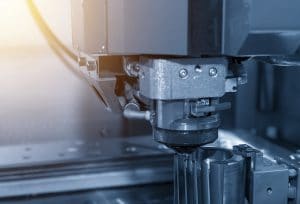 In their basic, conventional forms, heat exchangers are designed specifically to streamline electrical thermal management so companies can eliminate many of the burdens that come with it. For example, heat exchangers can consistently keep electrical enclosures properly cooled while using a significantly lower amount of energy, and the cooling units don’t need to be frequently maintained or fixed due to malfunction. However, many of today’s various thermal management processes have also benefited from specialized forms of heat exchanger technology, which are designed to address less common thermal management needs.
In their basic, conventional forms, heat exchangers are designed specifically to streamline electrical thermal management so companies can eliminate many of the burdens that come with it. For example, heat exchangers can consistently keep electrical enclosures properly cooled while using a significantly lower amount of energy, and the cooling units don’t need to be frequently maintained or fixed due to malfunction. However, many of today’s various thermal management processes have also benefited from specialized forms of heat exchanger technology, which are designed to address less common thermal management needs.
The concepts of heat exchanger technologies
The way heat exchangers streamlined electrical cooling was to simplify the methods by which they handled an application’s waste heat. Traditional solutions involved utilizing chilled air to keep temperatures within an enclosure low, thereby preventing the components within it from overheating. However, these solutions involved continuously generating and circulating chilled air, which are inherently energy intensive processes. By contrast, heat exchangers are designed to prevent overheating by keeping the waste heat continuously flowing away from sensitive electrical components. The concepts of transferring heat make heat exchangers a much more efficient and cost-effective solution for meeting today’s advanced thermal management needs.
Cooling more than electrical cabinets
Their ability to keep electrical waste heat in constant motion is the cornerstone of heat exchangers’ many benefits to modern companies. Nearly even company in every industry relies on technology to keep their operations running, and the cooling solutions used for each application play a significant role in that technology’s efficiency. Reducing the costs and improving the quality of their thermal management systems has made heat exchangers valuable for electrical cooling processes, and has also paved the way for companies to utilize heat transfer concepts for much more than just electrical enclosures. Today, heat exchangers are commonly used for processes such as wastewater treatment, and in some industries, the technology has also been utilized for more highly specialized applications in industries that rely most heavily on thermal management.
Specialized thermal management processes
While electrical cooling is essential in every industry, some rely on efficient and productive thermal management for the bulk of their operations. For example, in the plastic molding industry, a company’s ability to produce high-quality products at a competitive rate depends on its ability to rapidly and efficiently cool superheated molds. For many companies, specialized heat exchangers known as thermal pins can provide optimal levels of thermal management in a consistent and even manner, helping companies streamline their entire operations.
For more information about how some industries use specialized heat exchanger tech, call Noren Thermal Solutions in Taylor, TX, at 866-936-6736.







